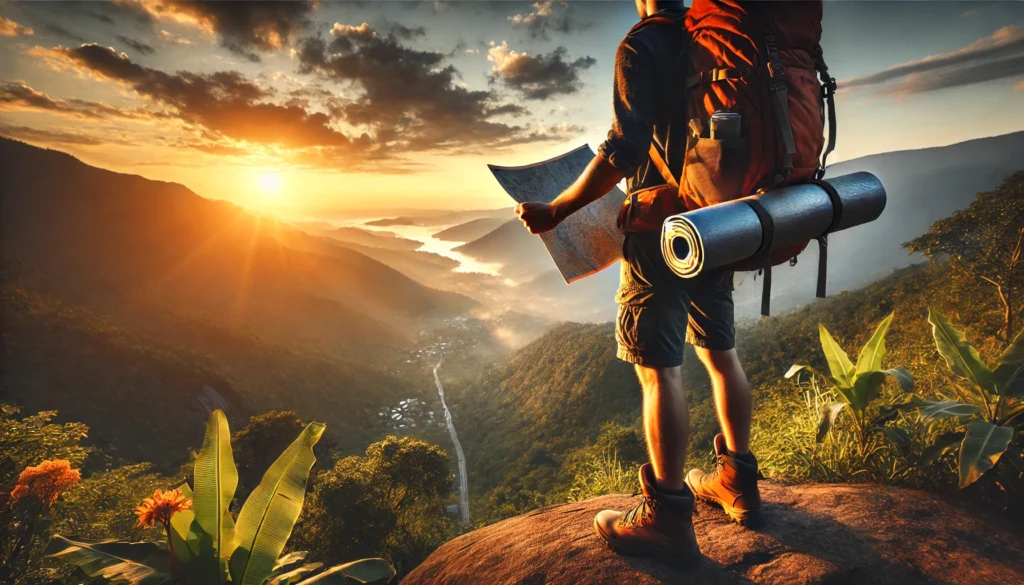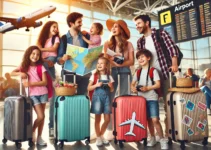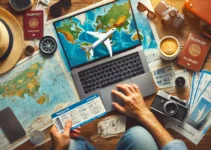Traveling solo can be one of the most rewarding experiences. The freedom to explore at your own pace, meet new people, and immerse yourself in different cultures is unparalleled. However, solo travel also requires a heightened awareness of safety. With the right precautions and a bit of planning, you can ensure a safe and enjoyable journey. Here are the top safety tips for solo travelers to help you navigate your adventures with confidence.

Chapter 1: Preparation is Key
1. Research Your Destination
Before you set off, take time to research your destination. Understanding the local customs, laws, and potential risks will help you avoid any unpleasant surprises.
- Know the Areas to Avoid: Every city has its less safe areas. Find out where these are and steer clear.
- Local Customs and Laws: Respecting local customs and laws not only keeps you safe but also enriches your travel experience.
- Health and Safety Information: Check for any travel advisories or health recommendations for your destination.
2. Plan Your Accommodation
Choose your accommodation wisely. Whether it’s a hotel, hostel, or Airbnb, safety should be a top priority.
- Read Reviews: Look for reviews from other solo travelers to gauge the safety and comfort of the accommodation.
- Location Matters: Ensure your accommodation is in a safe neighborhood, ideally close to public transport and main attractions.
- Emergency Exits: Familiarize yourself with the emergency exits and safety procedures.
Chapter 2: Smart Packing Strategies
3. Pack Light and Smart
Packing light not only makes travel easier but also safer. You’ll be less encumbered and more mobile.
- Essentials Only: Bring only what you need. A smaller bag is easier to manage and less likely to draw attention.
- Secure Your Valuables: Use anti-theft bags and travel locks. Keep your valuables close to your body in a money belt or hidden pouch.
- Copies of Important Documents: Keep digital and physical copies of your passport, ID, and travel documents in case of loss or theft.
4. First Aid and Safety Kit
Prepare a basic first aid and safety kit. This can be a lifesaver in case of minor injuries or illnesses.
- First Aid Essentials: Include bandages, antiseptic wipes, pain relievers, and any personal medications.
- Safety Items: A whistle, flashlight, and multi-tool can come in handy in emergencies.
Chapter 3: Staying Safe on the Move
5. Transportation Tips
Whether you’re flying, taking a train, or using public transport, safety on the move is crucial.
- Trusted Transport Services: Use reputable taxi services or rideshare apps. Avoid hitchhiking.
- Night Travel Precautions: Avoid traveling alone at night. If you must, stick to well-lit and busy areas.
- Secure Your Belongings: Keep your bags in sight and avoid displaying valuable items.
6. Navigating New Places
Getting around a new place can be challenging, but these tips can help you stay safe.
- Maps and Apps: Use reliable maps and travel apps for navigation. Download offline maps in case of poor connectivity.
- Blend In: Avoid looking like a tourist. Dress like the locals and keep your camera and maps discreet.
- Stay Aware: Keep an eye on your surroundings and trust your instincts. If something feels off, leave the area.
Chapter 4: Connecting with People
7. Meeting New People
Meeting new people is one of the joys of solo travel, but it’s important to stay cautious.
- Trust Your Gut: If someone makes you uncomfortable, distance yourself.
- Public Meetups: Meet new acquaintances in public places. Avoid secluded areas.
- Share Plans: Let someone know where you’re going and who you’re meeting.
8. Using Technology
Technology can be your best friend when it comes to staying safe.
- Stay Connected: Always have a means to contact someone, whether it’s a local SIM card or international roaming.
- Emergency Contacts: Keep a list of emergency contacts in your phone and a physical copy.
- Social Media: Be mindful of sharing your location on social media. Avoid real-time updates that reveal your exact whereabouts.
Chapter 5: Health and Wellness
9. Health Precautions
Staying healthy is a key part of staying safe.
- Vaccinations and Medications: Ensure you have all necessary vaccinations and medications before you travel.
- Stay Hydrated and Eat Well: Keep hydrated and maintain a balanced diet to stay energized.
- Avoid Overexertion: Take breaks and rest when needed. Don’t push yourself too hard.
10. Mental Well-being
Solo travel can sometimes be lonely or overwhelming. Take care of your mental health.
- Stay Positive: Keep a positive mindset and stay open to new experiences.
- Connect with Loved Ones: Regularly check in with family or friends back home.
- Take Time for Yourself: It’s okay to take a day off from sightseeing to relax and recharge.
Chapter 6: Cultural Awareness
11. Respect Local Culture
Understanding and respecting the local culture enhances your safety and enriches your travel experience.
- Learn Basic Phrases: Knowing a few words in the local language can help in emergencies and shows respect.
- Dress Appropriately: Follow local dress codes, especially in conservative areas.
- Be Polite and Friendly: A smile and respectful attitude go a long way in foreign countries.
12. Avoiding Scams
Tourist areas can be hotspots for scams. Stay vigilant to protect yourself.
- Common Scams: Research common scams in your destination. Be wary of overly friendly strangers offering unsolicited help.
- Secure Transactions: Use reputable ATMs and avoid carrying large amounts of cash.
- Check Prices: Confirm prices before accepting services, such as taxis or guided tours, to avoid being overcharged.
Chapter 7: Emergency Preparedness
13. Know Local Emergency Numbers
Every country has different emergency numbers. Familiarize yourself with these before you go.
- Save Contacts: Program local emergency numbers into your phone.
- Embassy Information: Know the location and contact details of your country’s embassy or consulate.
14. Create an Emergency Plan
Having a plan in case of emergencies can save precious time and reduce panic.
- Meeting Points: If traveling with others, agree on a meeting point if you get separated.
- Local Contacts: Establish contacts with locals or expats who can assist in emergencies.
Chapter 8: Financial Safety
15. Money Management
Managing your money wisely can prevent many potential problems.
- Multiple Payment Methods: Carry a mix of cash, credit, and debit cards. Keep them in separate places.
- Notify Your Bank: Inform your bank about your travel plans to avoid issues with card transactions.
- Daily Budget: Set a daily budget to keep track of your spending and avoid carrying too much cash.
16. Avoiding Financial Scams
Financial scams can be a major issue for travelers. Here’s how to protect yourself.
- ATMs: Use ATMs inside banks rather than on the street.
- Credit Card Safety: Use cards with chip technology and monitor your account for unauthorized transactions.
- Suspicious Offers: Be wary of deals that seem too good to be true.
Chapter 9: Staying Safe in Accommodations
17. Hotel Safety
Hotels are generally safe, but it’s still important to take precautions.
- Room Location: Higher floors are typically safer from break-ins.
- Lock Up: Use all available locks on your hotel door, including the deadbolt and security chain.
- Safe Use: Store valuables in the hotel safe if available.
18. Hostels and Shared Accommodations
Staying in hostels or shared accommodations requires extra vigilance.
- Secure Your Belongings: Use lockers and bring your own lock.
- Respect Roommates: Be considerate of others and communicate about safety concerns.
- Choose Reputable Hostels: Read reviews and choose hostels known for their safety and cleanliness.
Chapter 10: Trust Your Instincts
19. Intuition is Key
Your intuition is a powerful tool when it comes to staying safe.
- Listen to Your Gut: If something doesn’t feel right, trust your instincts and leave the situation.
- Be Assertive: Don’t be afraid to assert yourself if someone is making you uncomfortable.
- Stay Calm: In stressful situations, stay calm and think clearly. Panic can cloud judgment.
20. Continuous Learning
Safety is an ongoing process. Keep learning and adapting to new situations.
- Stay Informed: Keep up with the latest travel safety tips and news.
- Learn from Others: Connect with other solo travelers and share experiences and advice.
- Reflect and Adjust: Reflect on your experiences and adjust your safety practices as needed.
Conclusion
Solo travel is an empowering and enriching experience that offers endless opportunities for adventure and personal growth. By following these top safety tips, you can navigate the world with confidence and enjoy your travels to the fullest. Remember, preparation and awareness are your best tools for staying safe. So pack your bags, trust your instincts, and embark on your solo adventure with peace of mind.
Happy travels!


